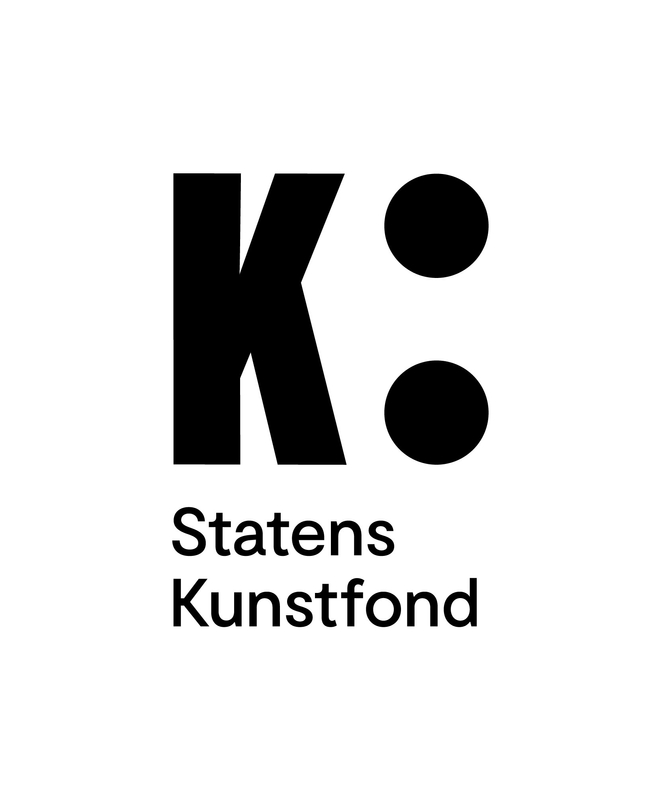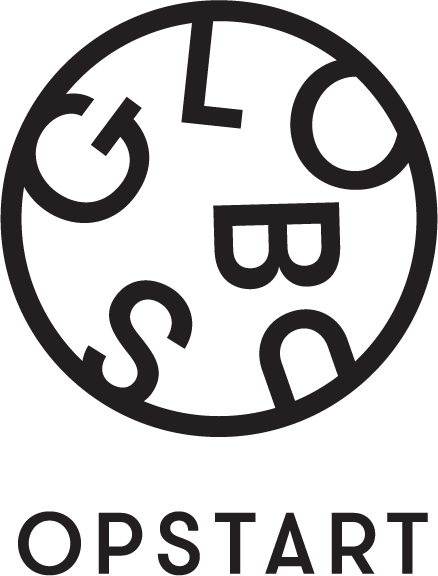The Goldberg Variation (Bach Clock)
We are pleased in collaboration with swedish composer Jesper Norda to invite you to the first ever full durational live performance of:
The Goldberg Variation (Bach Clock)
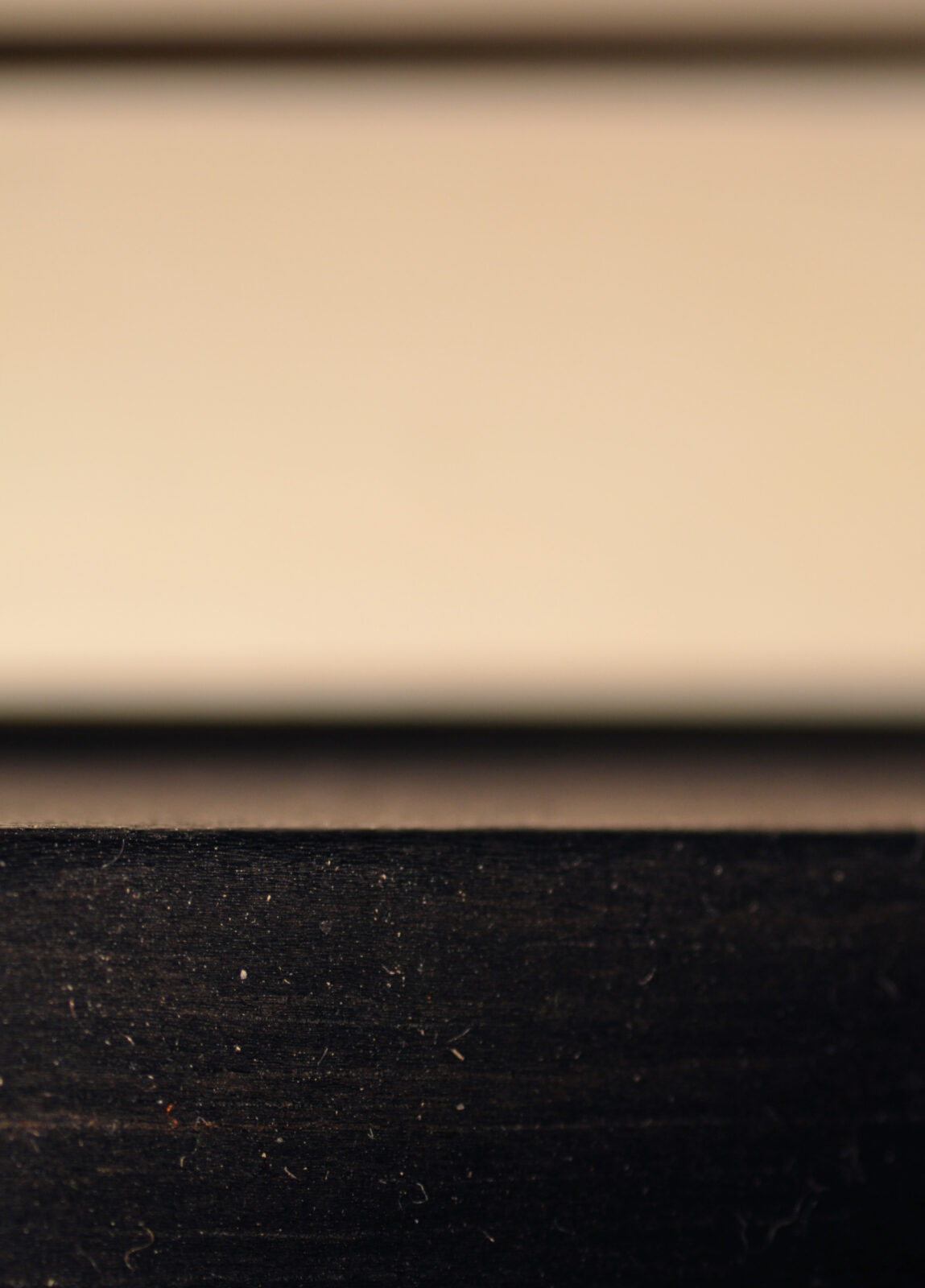
Photo: Jesper Norda
We are excited about organizing the first ever full durational live performance of swedish composer Jesper Norda’s piece The Goldberg Variation (Bach Clock) – for one, two or more pianists, 2012.
While the piece have been existing in different phases and medias, we now seek to bring the full and minimalistic yet comprehensive experience together – we seek to explore the whole exhausting duration of the live piece, allowing time to wash over our bodies and the listening experience.
As audience you will greeted with a listening-calibration score before entering the space of the performance. We will arrange different means for you to be in the space (by laying down, sitting, standing..) and we hope this will allow you to listen in the manner suitable for you.
At the performance will it be possible to follow the 12,5 hours score in a physical publication. It will also be possible to cross reference the page of the score with what time it is.
The score of The Goldberg Variation (Bach clock) is published by Royal Förlag.
Place: Bådehuset / Ancestral Modernism, Refshalevej 320, 1432 København K (Find your way)
Date: Saturday the 7th of October 2023
Time: 8:00 am – 8:25 pm
Composer: Jesper Norda
Tickets: We offer a sliding price scale for tickets (150 DKK as standard, 50 DKK for people with lower income fx. students, and a pay-what-you-can option if needed). Buy tickets here.
Other:
- we will serve simple food and drinks (making it possible to stay for the full duration)
- bring warm cloth (we will have some blankets, but not too many…)
—
Listening Seminar on the 9th of October, from 2pm – 4 pm, same location.
—
The project is supported differently by:
København Kommune Musikudvalg, Nordisk Kulturfond, Art Music Denmark & Statens Kunstfond
We are also very grateful for all the help Ying-Hsueh Chen has been able to offer with realising this project.
Listening Seminar
To explore further the aftermath of the performance; its slowness, potential listening practices, and ideas of musicality, we are together with Sound Studies Lab (University of Copenhagen) and Art Music Denmark hosting a Listening Seminar on the same location the following Monday, 9th of October at 2pm to 4pm. Jesper Norda, Carolyn F. Strauss (Slow Research Lab, Amsterdam), and prof. Holger Schulze (Sound Studies Lab) will at the seminar dwell into each other’s experiences and perspectives and bring new wonderings forth to the audience, who will in return be able to share thoughts and pose questions to the presenters.
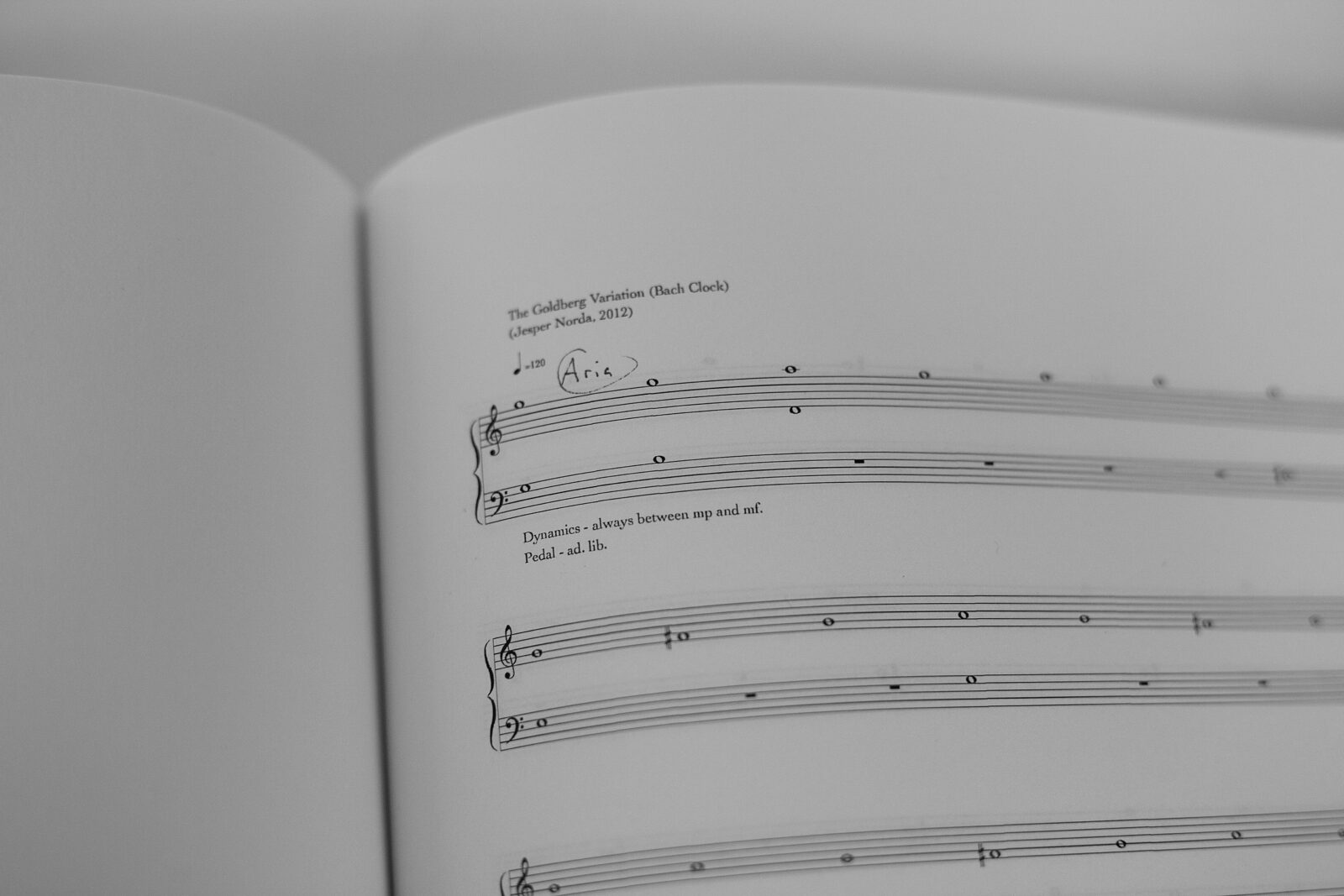
About the work, Norda writes himself:
The Goldberg Variation (Bach Clock)- for one, two or more pianists (2012) is based on Johann Sebastian Bach’s Goldberg variations. But whereas Bach’s version takes around 30 minutes to play from beginning to end, this version is stretched to 12 hours and 25 minutes. Each note in the original score is struck at even intervals, every two seconds. The rythm is evened out, the dynamics are flattened: every sense of musical direction is gone. What remains is a solemn enumeration of all the tones that make up the original piece – a kind of clockwork.
/ Jesper Norda, 2016.
Listen to an extract of The Goldberg Variation (Bach Clock)- for one, two or more pianists (2012):
Accompanying the 12 hours and 25 minutes live performance is Jesper Norda’s video piece: 13 hours sunrise, 2012 (excerpt).
Listening calibration note (handed out upon arrival at the performance):
We welcome you to this place. To this performance.
Please, consider entering the room quietly and attentively.
Orientate yourself. Maybe by walking around the room a few times.
Find a place for you to listen. Place your body in the way you find suitable and comfortable to listen to the piece.
Let your body rest, and let it be cared for.
Take some deep breaths and start to explore the sounds.
Both the sounds of this room, and beyond it.
Consider what it means to be in this room and listen the ways we do for yourselves and together.
Stay in the room and listen for as long as you wish. Pay attention to what happens with your body, with your listening and your interaction with the piece and performance over time.
If you need anything let us know.
Questions to wonder upon while listening (written on the back side of the program handed out guests):
What kind of space are you in?
Who are the people who are in this space with you listening to the same piece?
What sounds did you bring with you into the room and which ones did you leave outside of it?
How does your attention to the room, its people, the performance change over time? What escaped your attention in the beginning? What do you no longer pay attention to? What can you only be attentive toward after multiple hours?
What kind of relationship do you experience between your body and the passing of time?
Which questions come into your mind while listening to the piece?
Short video of Jesper playing after 12 hours:
Documentation of the performance:
A reportage of both the performance and following Listening Seminar by Rasmus Weirup for Seismograf.
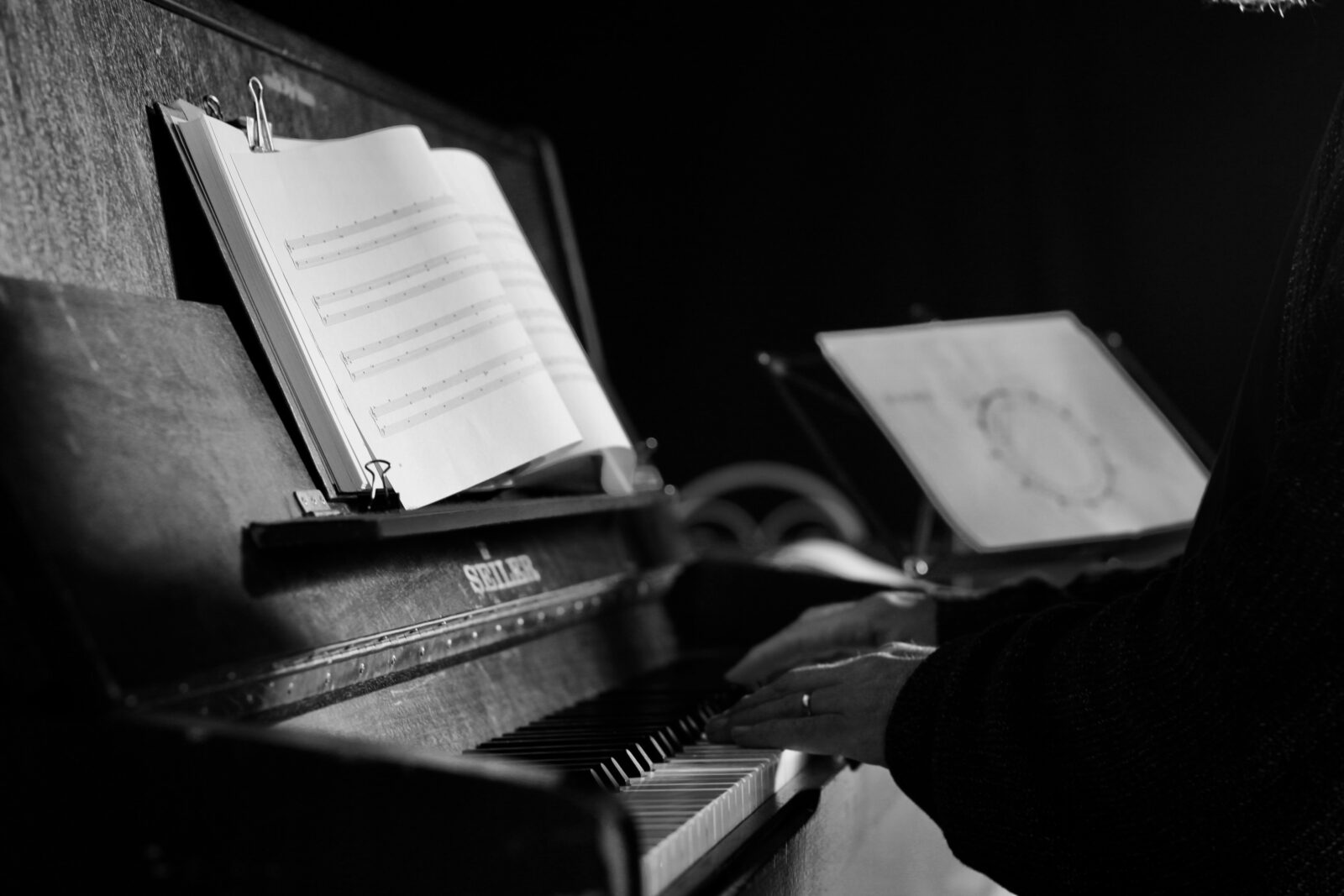
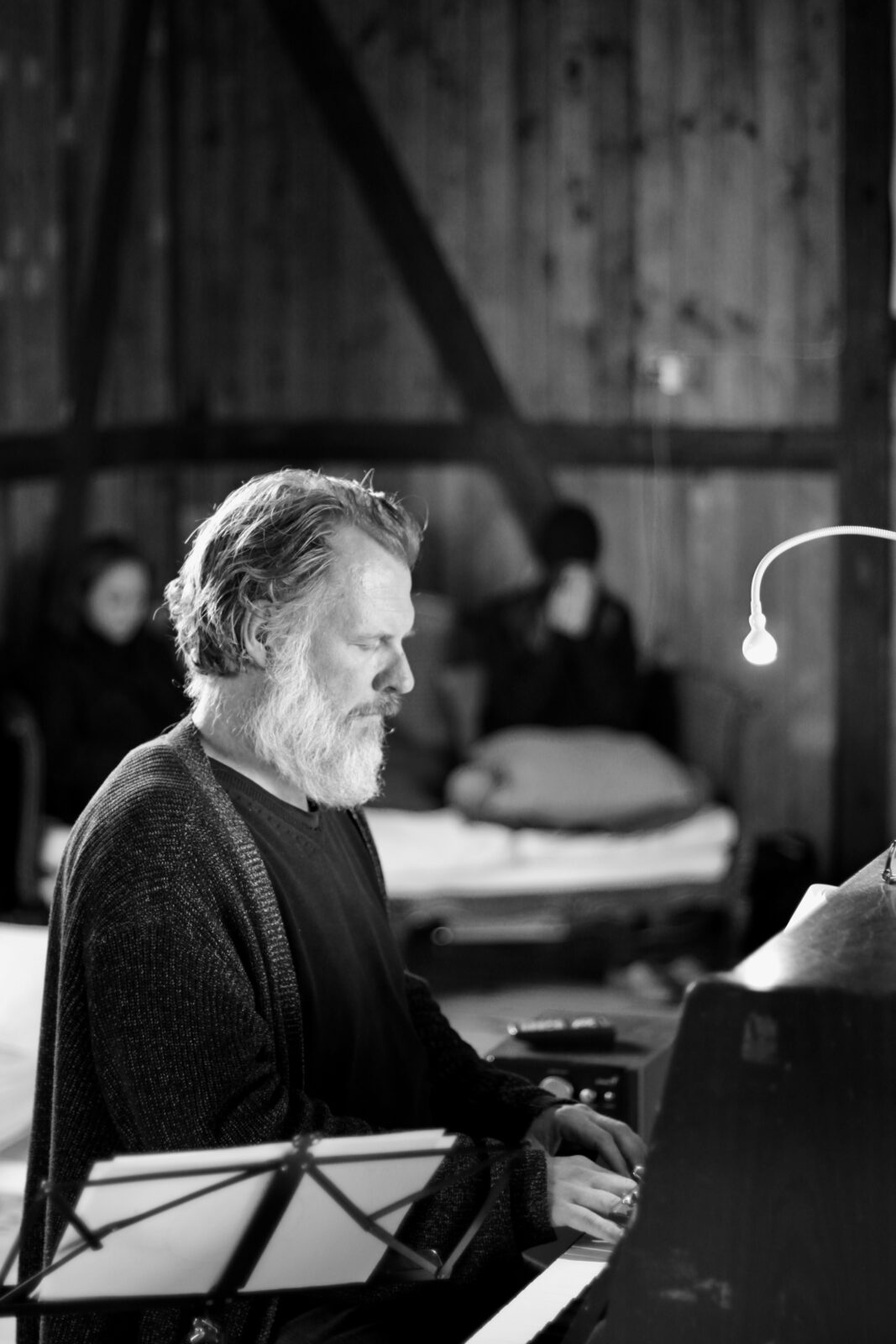
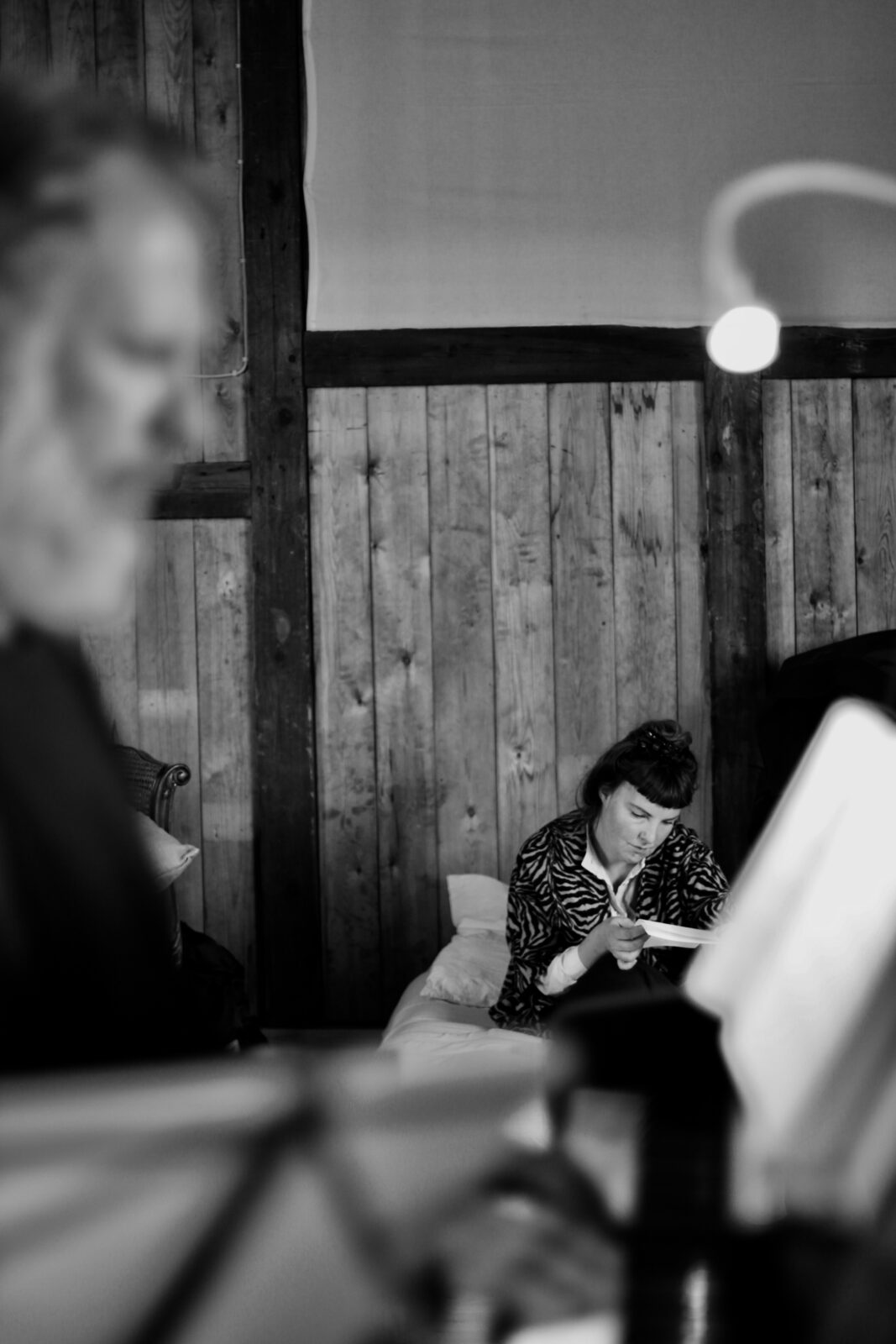
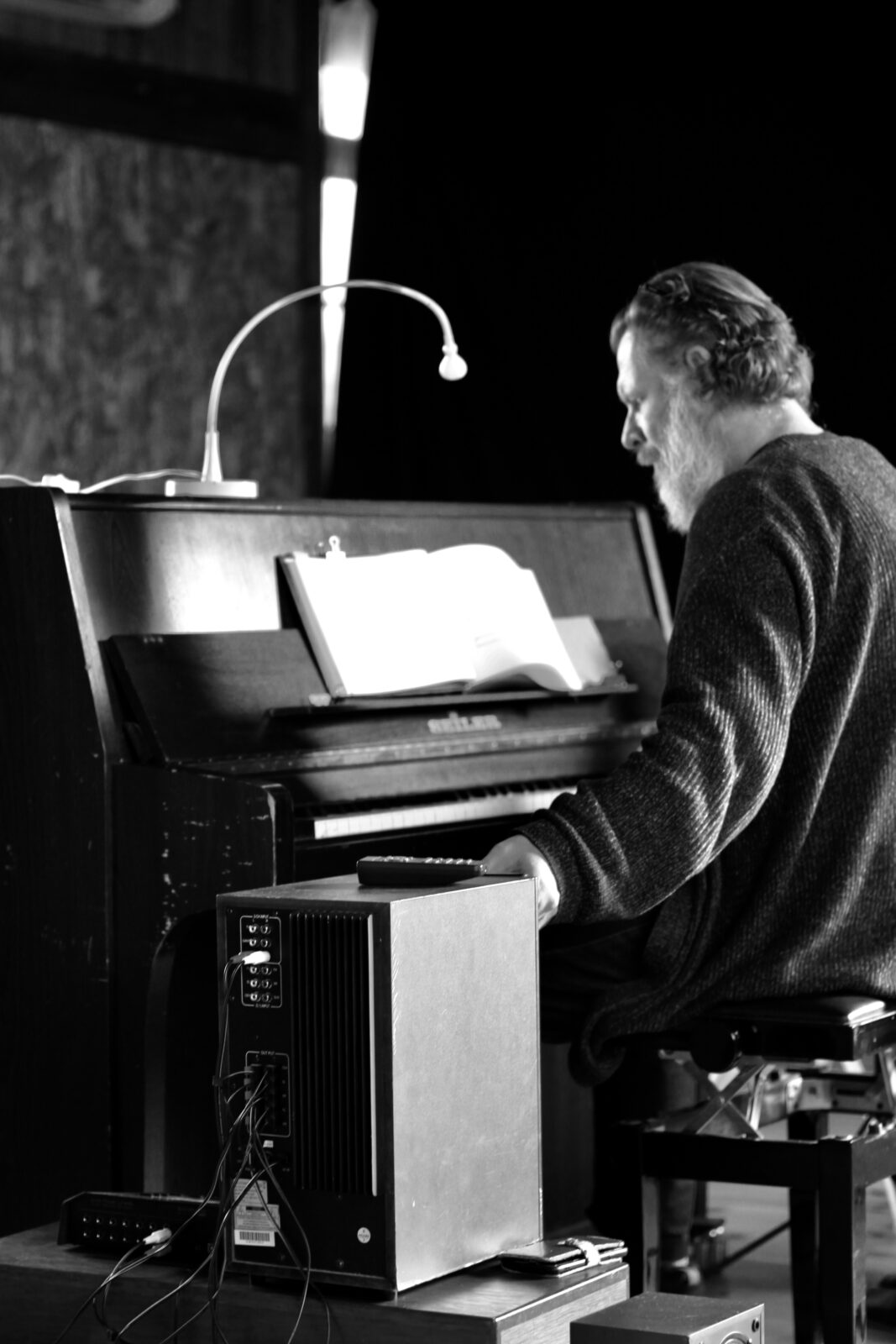
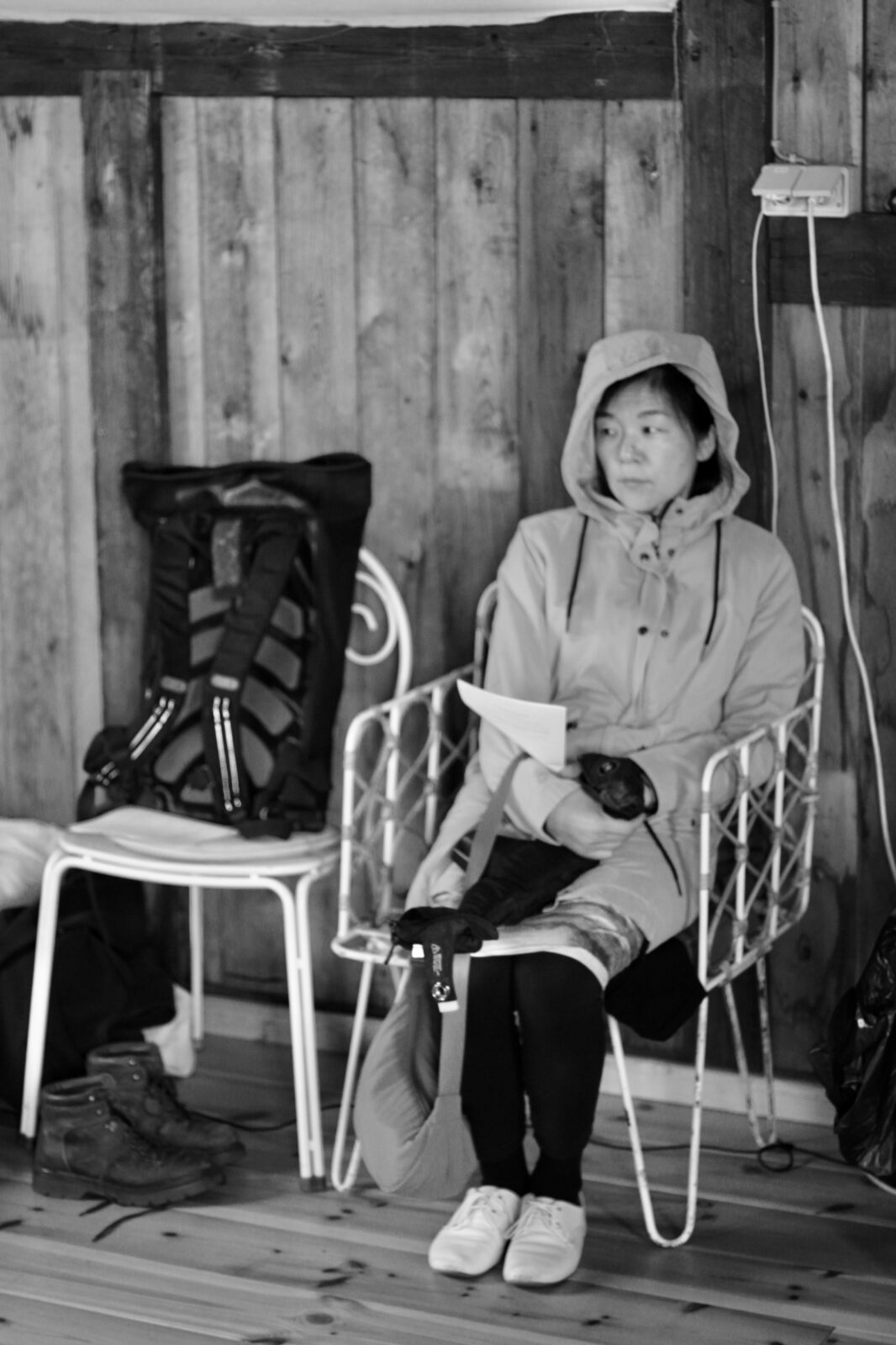
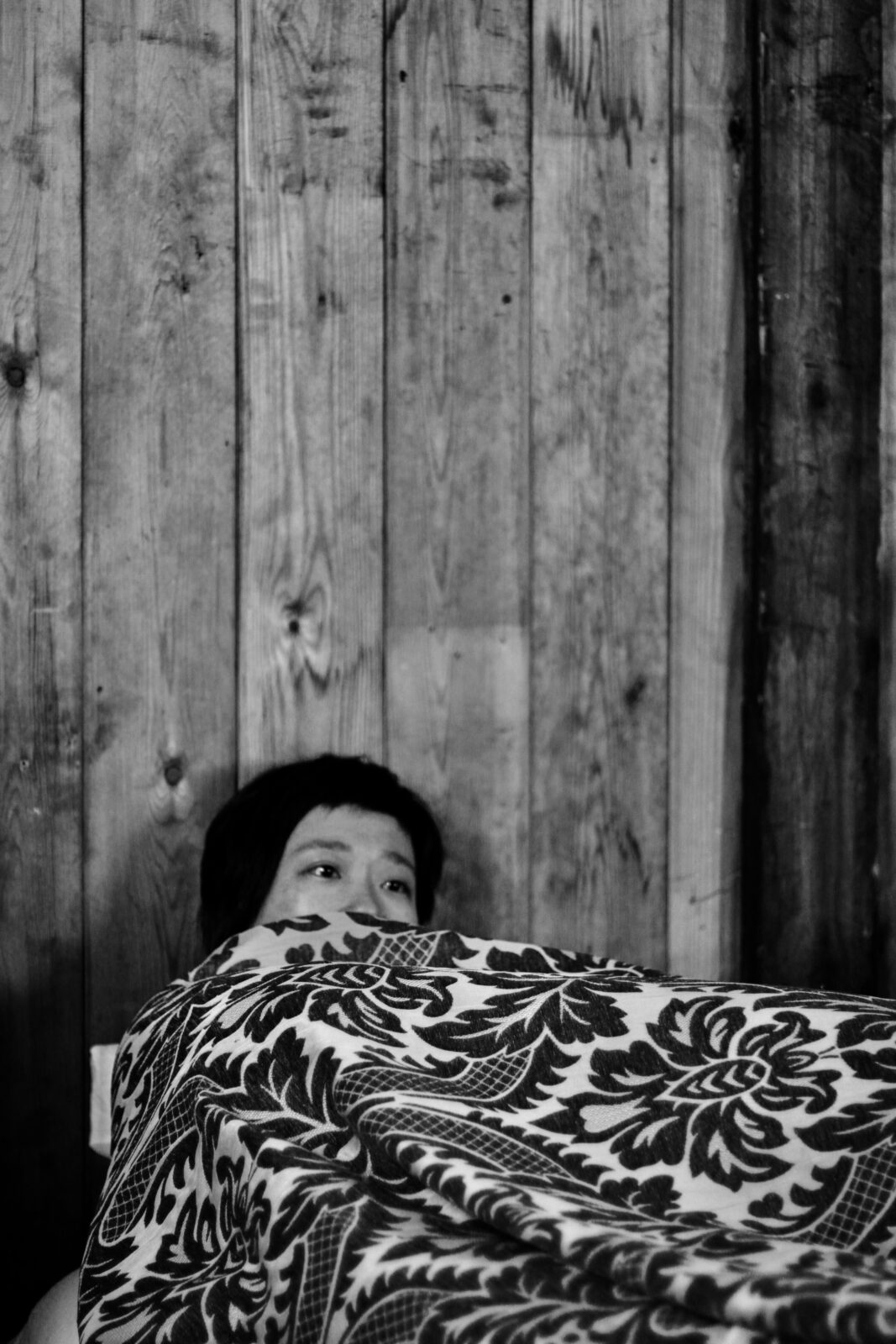
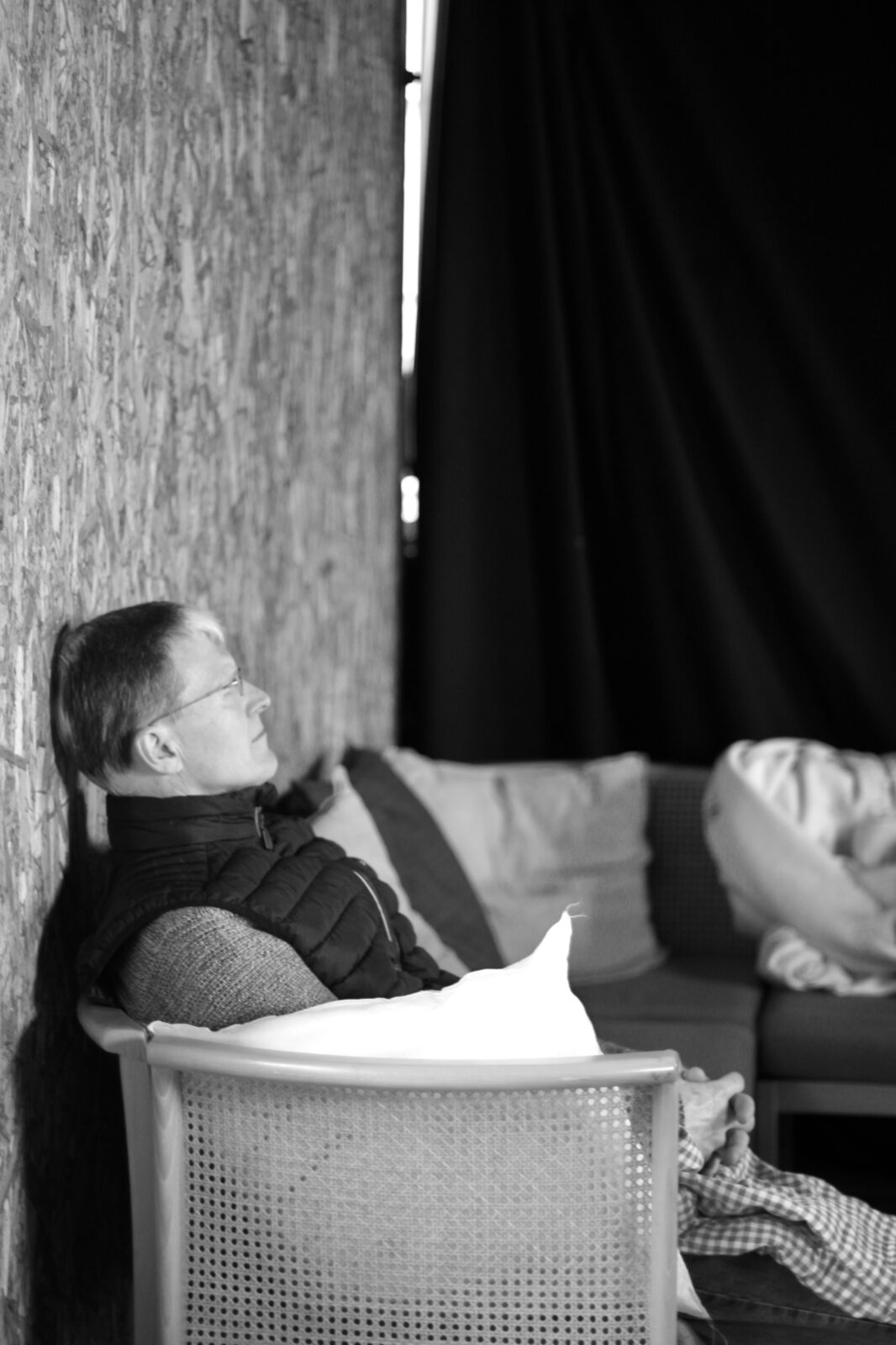
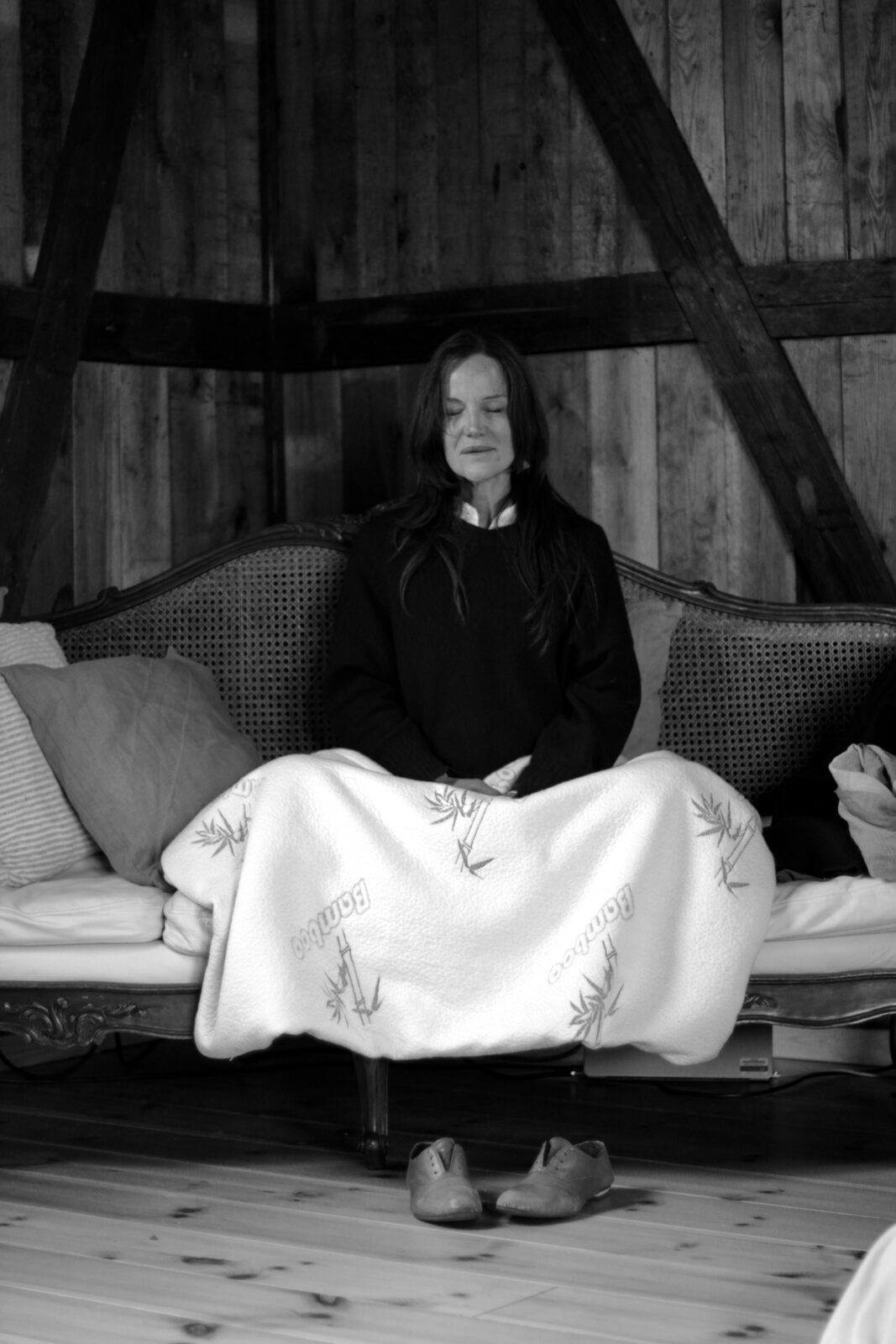
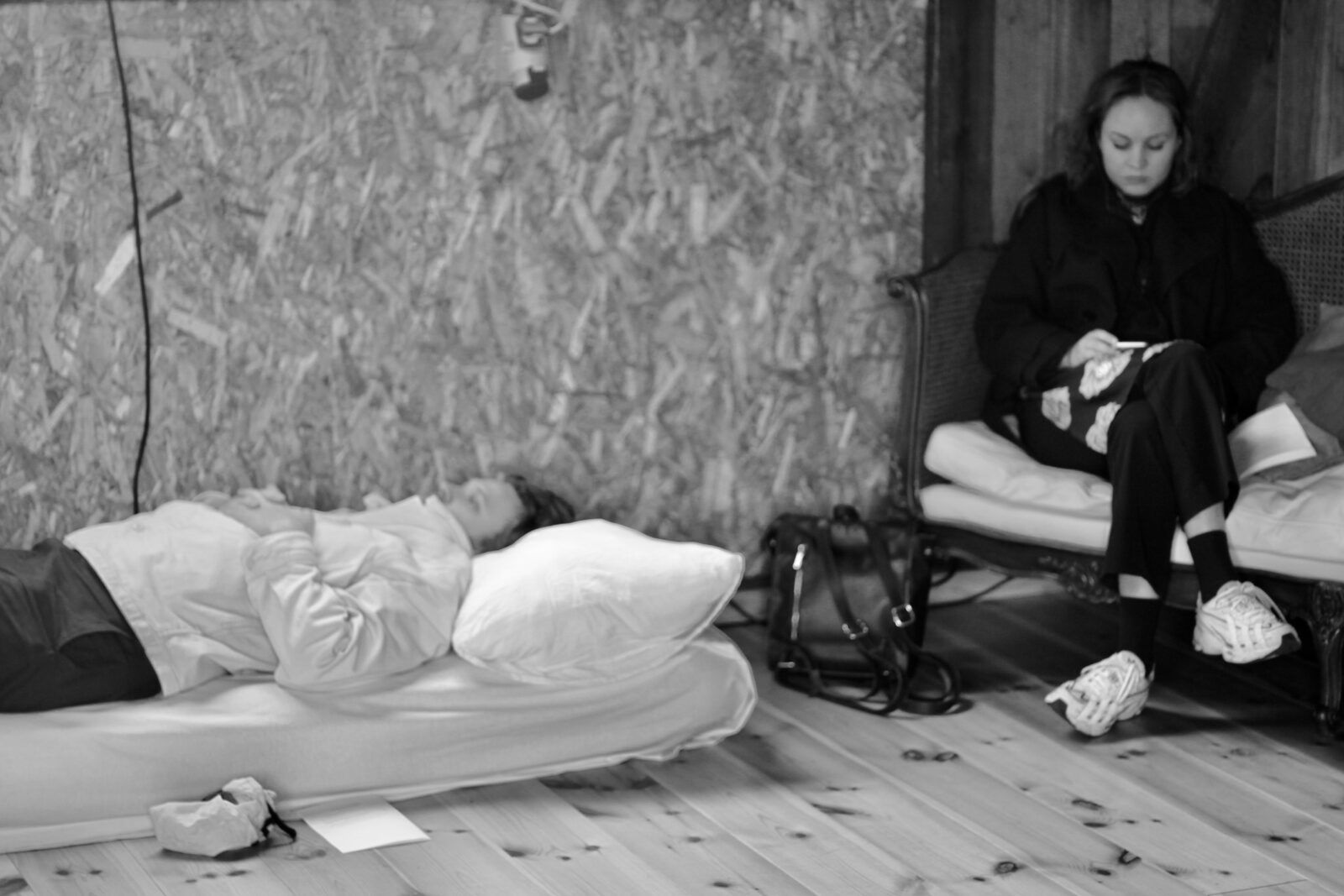
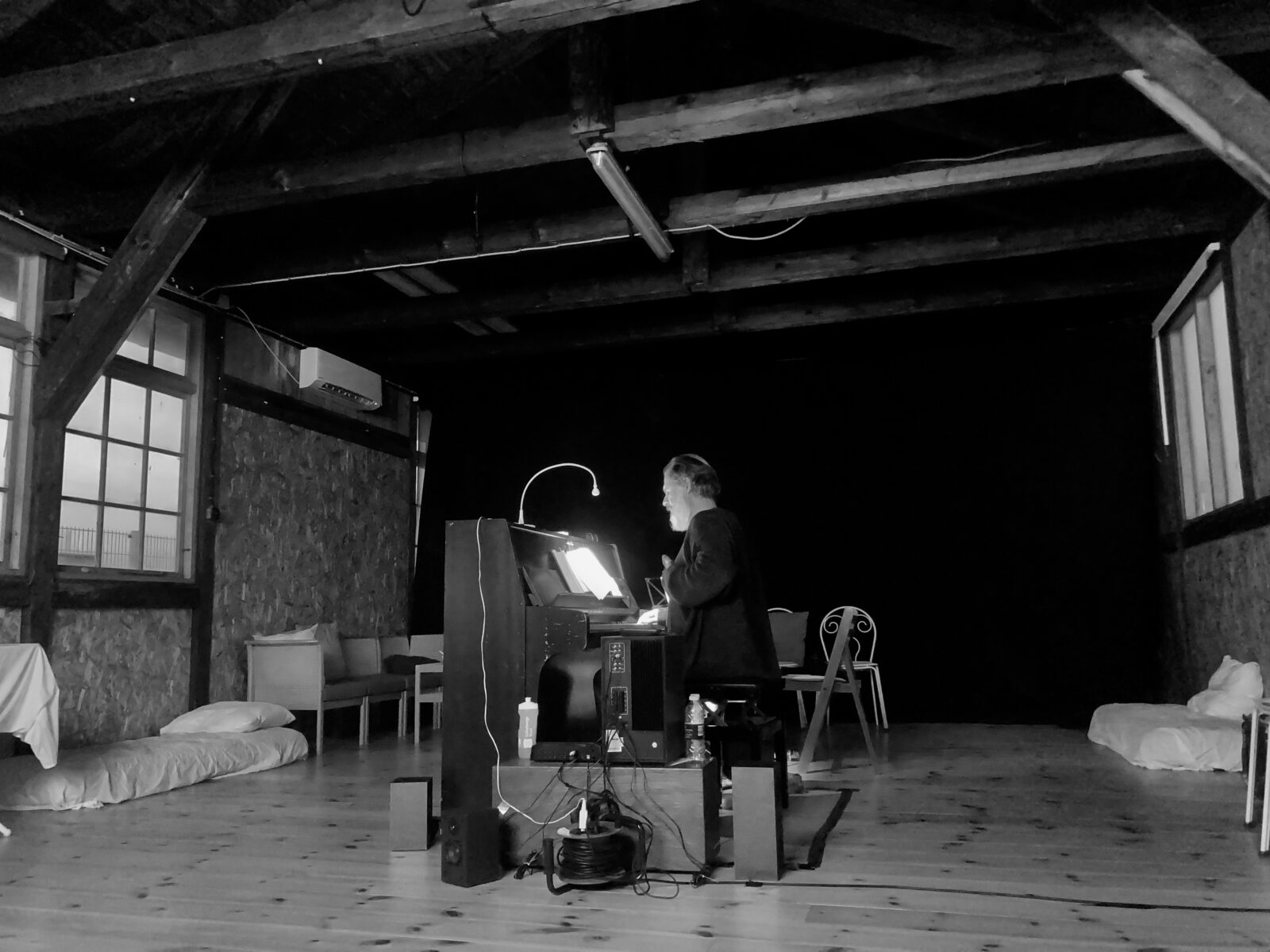
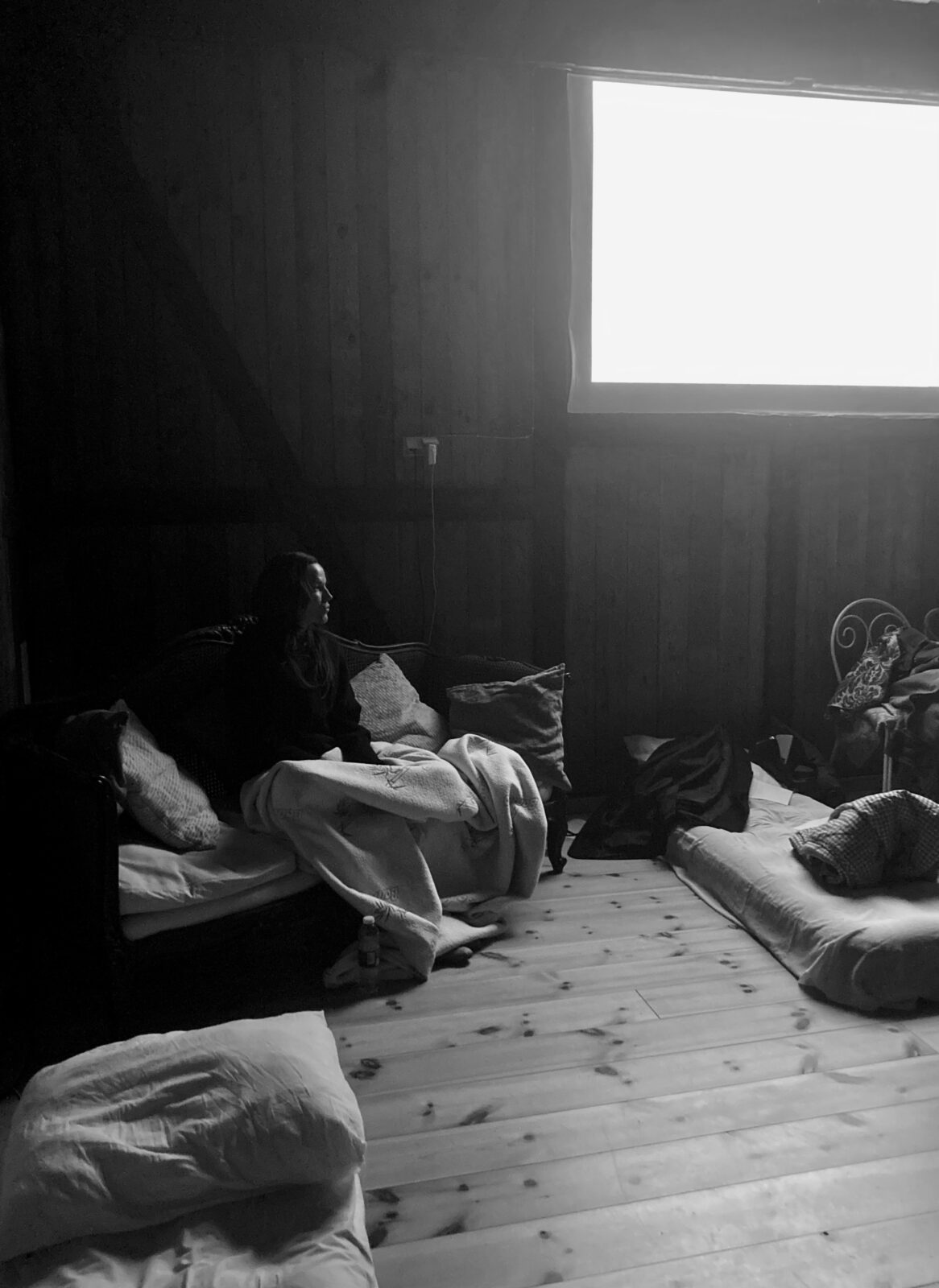
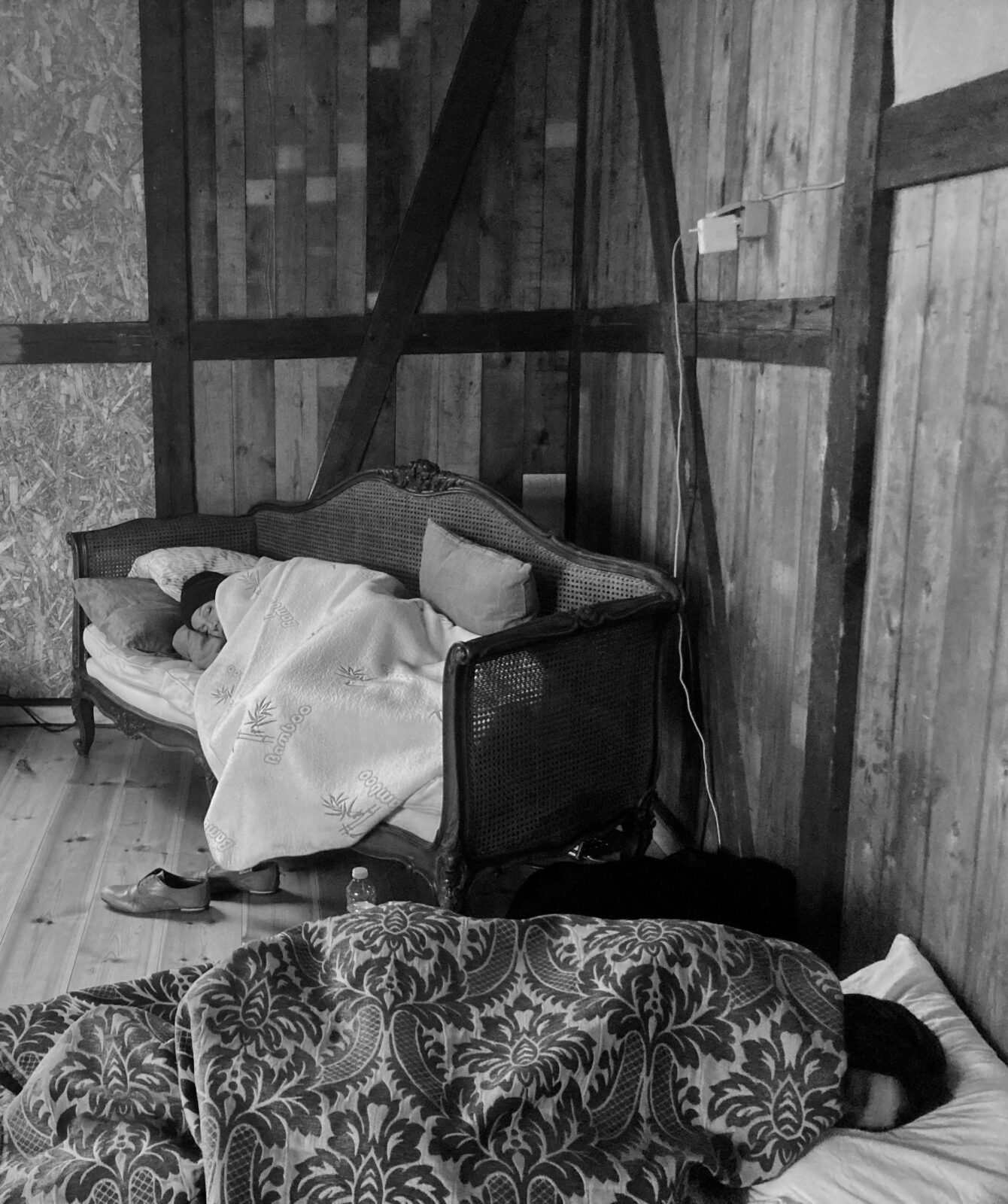
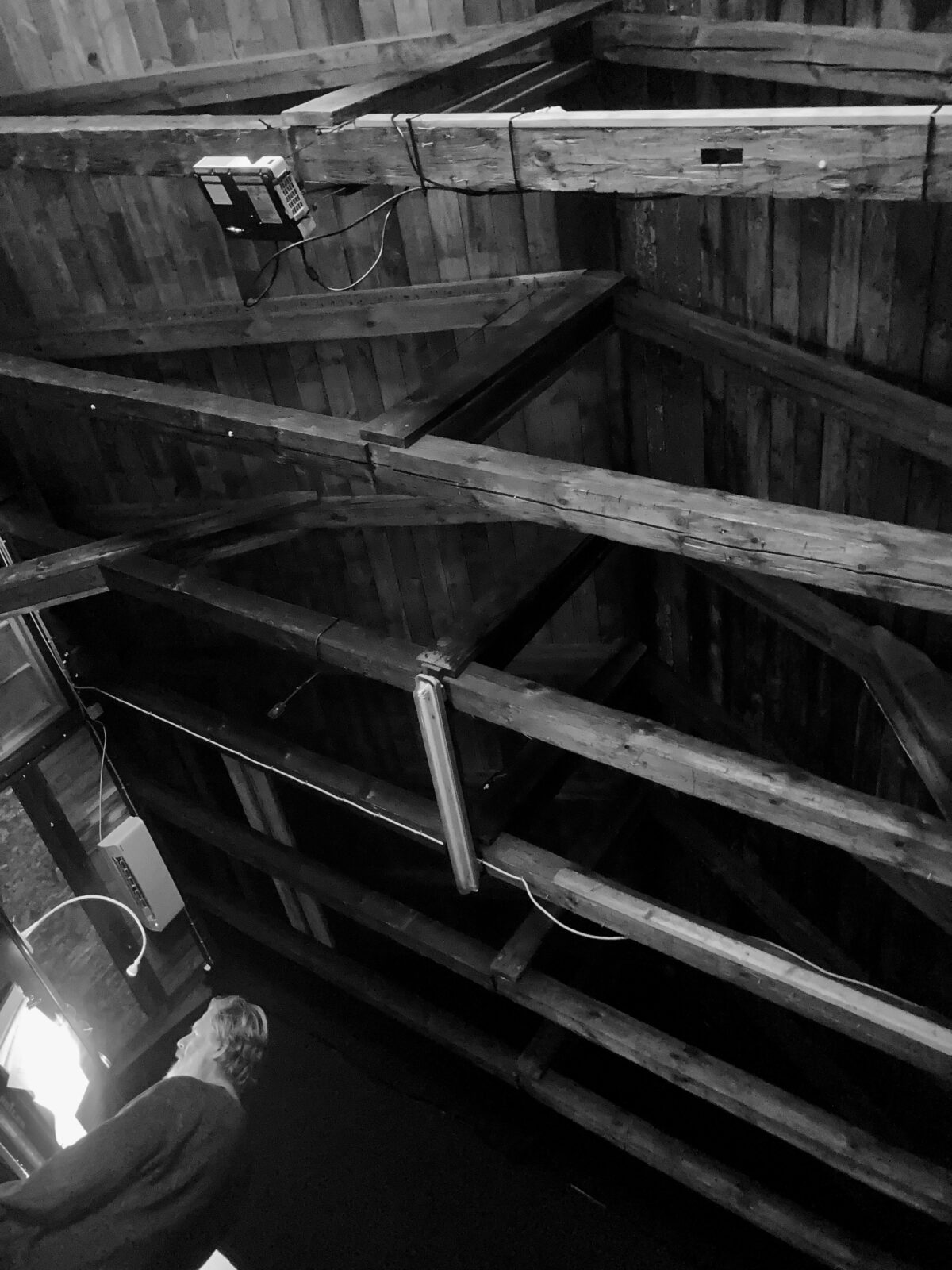
Supported by:


